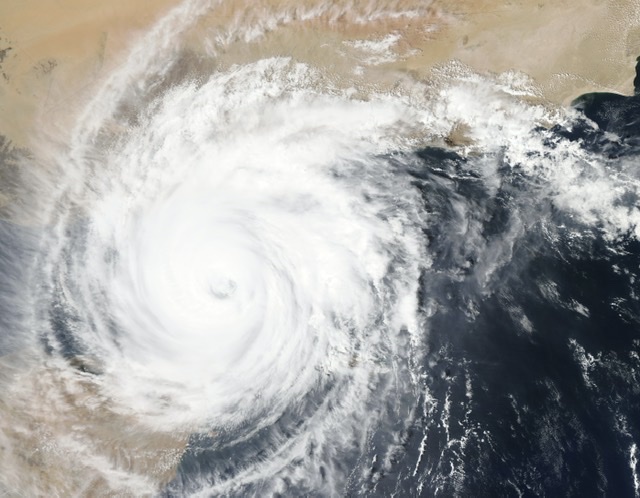Spending priorities by the federal government are increasingly questionable, if not indefensible; they raise fundamental questions about the competence and intelligence of our policymaking elites.

Australian security policy generally, and the saga about replacing the nation’s submarines in particular, highlight all that is short-sighted and misguided about the priorities of Australian policymakers. Brian Toohey’s recent forensic analysis of strategic thinking and defence spending details the astoundingly costly errors of planning and basic due diligence that will saddle long-suffering taxpayers with an unnecessary burden for decades.
The repeated basic policy failures and cost overruns by the defence department exemplify wider problems in the priorities and thinking of strategic and policy elites in the Canberra bubble. Not only are the new submarines — when/if they arrive and actually work — certain to fail in the primary strategic purpose of deterring China, but far more important, immediate and real threats won’t be addressed as a consequence.
If the People’s Republic of China isn’t deterred by the vastly superior military capabilities of the United States, it’s hardly going to be intimidated by anything Australia does, with or without its increasingly erratic alliance partner. But while we are endlessly demonstrating our reliability and strategic credibility by investing in costly (and unproven) new weapons systems, we will not have the resources to address more urgent threats to our national security.
I refer, of course, to climate change, an immediate, rapidly intensifying problem that directly affects Australia, the driest continent on the planet. Environmental degradation and global warming not only potentially undermine Australia’s economic position, but also threatens the lives and livelihoods of the population.
The standard defence of this irresponsible and short-sighted policy is that Australia can make little difference to the trajectory of climate change if the likes of China, the US and India are not on board. Perhaps so, but it is striking that the same logic is not applied to defence acquisitions that are also incapable of making a decisive, independent difference to strategic outcomes in the Indo-Pacific region.
Paradoxically, Australia’s defence priorities actually demonstrate that the government is capable of long-term thinking and planning, but only in a limited number of areas. It will be 40 years until the submarine fleet is finally complete, by which time the world will be a very different place. If only some of the predictions made about the likely impact of global warming come to pass, there is a very good chance that future governments will be trying to deal with the impact of a 3°C rise in average temperatures, with all its catastrophic implications for human beings and the natural environment upon which they ultimately depend.
As Greg Jericho pointed out recently in the Guardian, by the time Scott Morrison’s youngest child reaches her father’s age, a 3°C temperature rise is as certain as anything can be about as complex an issue as climate change. The question is whether Morrison actually understands this and what it will mean for his immediate family, or whether he really believes Australia will remain magically — even divinely, perhaps — immune to the demonstrable impact of unmitigated climate change.
Some will consider this a cheap shot, no doubt, but given the stakes and the long-term affects of poor policy, it is reasonable to question the capacity of our leaders to actually understand what is happening. It is increasingly apparent what a danger Trump’s bottomless ignorance and self-regard poses to both his own country and the rest of the world.
Morrison’s background as a salesman may render him similarly incapable of recognising that the current global economic system is part of the problem and something that will have to be managed differently if we are to continue to enjoy our remarkably privileged lifestyles. Spending money we don’t have on weapons systems we don’t need — and which probably won’t work as advertised anyway — means we can’t tackle far more pressing and implacable problems that threaten to overturn the fabled ‘Australian way of life’.
It may actually mean thinking about how we encourage international cooperation of a sort that will potentially allow us to address some of the global problems we face. This will undoubtedly involve cooperating with, rather than trying to contain, China. It will also involve thinking more creatively about tackling issues of international inequality, and the possible moral obligations the West owes to the Rest.
We might hope that such a prominent Christian as Morrison might be keen on this in principle, at least. I think not. On the contrary, not only is Morrison seemingly incapable of putting any interest above his own, the Coalition’s and the nation’s (in that order), but he seems entirely indifferent to the fate of others not fortunate enough to enjoy our entirely arbitrary community of fate. With such complacent, incompetent and insular leadership, why are we surprised that so many of the young despair?
Mark Beeson is an Adjunct Professor at the University of Technology Sydney and Griffith University. His latest book is Environmental Anarchy? International Relations Theory and Practice in the Anthropocene, (Bristol University Press: 2021) He has also written Environmental Populism: The Politics of Survival; in the Anthropocene Palgrave 2019

Comments
3 responses to “China is not the urgent threat; climate change is”
I also agree with all comments made so far.Unfortunately with both sides of politics snared by the fossil fuel industry lobby groups, I fear any change in policy will come far too late .Andrew’s comments hit the nail fairly on the head!
Gavin O’Brien FRMetS
I agree of course as any sensible person must.
But underlying it all, the big threat is the lack of knowledge and capacity for sensible analysis within government. I do not know how good sense has lost its place in government and media and public debate. Fear must be a big factor in the smothering of sensible ideas, and even of facts.
I have dealt with extraordinarily narrow attitudes in ASIO in the past, but never in the past did ASIO have such power. I was startled to read this report of advice to the parliament by the director-general this week:
https://www.theguardian.com/australia-news/2020/oct/21/asio-chief-says-foreign-spies-trying-to-deceptively-cultivate-australian-politicians-at-every-level
“”You’ve got foreign governments who covertly direct people to develop relationships [with all levels of all governments], to try and curry favour, and one day they’ll call in that favour – and some good people may not even understand they’ve been influenced in a way that is counter to our national interests,” Burgess told a parliamentary committee on Tuesday.”
Either I unknowingly spent years as a spy or Burgess doesn’t know what embassies are supposed to do: make friends, obtain information, seek to influence. Without which we are deaf, blind and without friends or influence. There is a mindstate that we should shut ourselves off and that mindstate is having victories. When comes the day when we need to ask for support (and such days are everyday) it is a terrible handicap if you don’t already know, don’t have a trust relationship with, the right person… There is, I understand, some kind of election under way in the United States. I do hope our people in Washington have been cultivating the possible new regime. Lock ’em up if they haven’t.
China will be annoyed by us, will seek to work with others rather than with us, for so long as we persist in being that grubby child on the corner who thinks he’s very smart throwing mud pies. Constantly the media describe China as initiator or bad relations. “Wasn’t me” is just dumb. China as aggressive enemy is a label in search of evidence, by conflict-focused minds who avoid wider study and understanding.
Both the government and the “opposition” claim they accept and follow the science of climate change.
BUT THEY DO NOT!
Greenhouse gas levels and temperatures are rising inexorably toward 2 degrees Celsius and beyond (September 2020 411.29 ppm https://www.esrl.noaa.gov/gmd/ccgg/trends/) and as the century progresses toward 3C and then 4C and there is nothing being done to arrest or even slow-down this trend, as it generates amplifying feedback effects from land and oceans (reduced ice sheets, warming oceans [less CO2 absorption], methane release, drying vegetation, fires).
The trend is only accelerating.
The manifestations have been repeatedly stated by leading climate scientists
https://www.sciencedaily.com/releases/2012/11/121119104842.htm
https://www.theguardian.com/environment/2019/may/18/climate-crisis-heat-is-on-global-heating-four-degrees-2100-change-way-we-live
Tragically the consequences would render COVID-19 a relatively minor event
Dr Andrew Glikson, Earth and climate scientist….